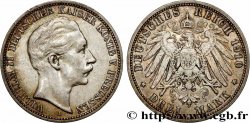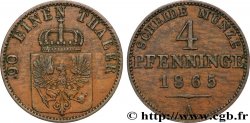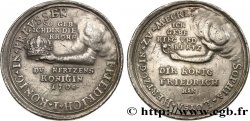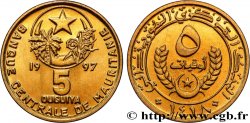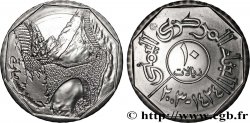E-auction 383-295950 - fwo_601160 - GERMANY - PRUSSIA 1/3 de Thaler Frédéric II 1772 Berlin
Чтобы принять участие в торгах, вы должны войти в систему и стать подтвержденным участником аукциона. Войдите, чтобы сделать ставку. Ваш аккаунт будет подтвержден в течение 48 часов. Не ждите до закрытия торгов, чтобы зарегистрироваться.Сделав ставку на данный товар, вы вступаете в юридическое соглашение на покупку выбранного товара и нажатием кнопки «Сделать ставку» подтверждаете принятие вами условий интернет-аукционов cgb.fr.
Ставка может бить сделана только в полном эквиваленте евро. Торги закроются согласно времени, указанному в описании товара, все ставки, сделанные после закрытия торгов, учитываться не будут. Не следует откладывать предложение вашей ставки до последнего момента, так как система может не успеть обработать вашу заявку, и ваша ставка не будет принята. Более детальную информацию вы найдёте здесь: FAQ по интернет-аукционам.
БЕСПЛАТНО.
БЕСПЛАТНО.
| Оценить : | 30 € |
| Цена : | 21 € |
| Максимальная предлагаемая цена : | 27 € |
| Конец торгов : | 17 August 2020 17:16:30 |
| Участников : | 7 Участников |
Тип 1/3 de Thaler Frédéric II
Дата: 1772
Монетный двор / Город: Berlin
Металл: silver
Проба: 660 ‰
Диаметр: 30 mm
Ориентация осей монеты: 12 h.
Вес: 7,02 g.
Век: décorée
Ссылки в каталоге: :
Лицевая сторона
Аверс: легенда: FRIDERICUS BORUSSORUM REX.
Аверс: описание: Tête laurée à droite de Frédéric II.
Обратная сторона
Реверс: легенда: ✿ 3 ✿ / EINEN / REICHS / THALER / 1772 / A.
Реверс: Описание: Couronne de lauriers.
Комментарий
Frédéric naquit à Berlin le 24 janvier 1712 et est le fils de Frédéric-Guillaume Ier. Il fut d'abord l'allié de la France dans la Guerre de Succession d'Autriche (1740-1748) puis il y eut retournement d'alliance lors de la Guerre de Sept Ans (1756-1763). Il fut l'un des grands vainqueurs du traité de Paris (1763) et participa au premier démembrement de la Pologne (1772). Frédéric II (1712-1786) fut le plus grand roi de Prusse. Ami de Voltaire, il écrivait en français et fut le modèle du despote éclairé de la seconde moitié du XVIIIe siècle. Il succéda à son père Frédéric-Guillaume, le Roi Sergent et fit de Berlin une véritable capitale et du Château de Sans Souci à Postdam un petit Versailles. Grâce à une politique belliqueuse, il fit de la Prusse l'état le plus puissant de l'Europe Orientale et contrebalança l'influence de l'Autriche et de la Russie. Il mourut au château de Sans-Souci (Potsdam), le 17 août 1786.
Frederic was born in Berlin on January 24, 1712 and is the son of Frederick William I. It was first France's ally in the War of the Austrian Succession (1740-1748) then there was a reversal of alliance during the Seven Years' War (1756-1763). He was one of the great winners of the Treaty of Paris (1763) and took part in the first dismemberment of Poland (1772). Frederick II (1712-1786) was the greatest king of Prussia. Friend of Voltaire, he wrote in French and was the model of the enlightened despot of the second half of the 18th century. He succeeded his father Frédéric-Guillaume, King Sergent and made Berlin a real capital and the Château de Sans Souci in Potsdam a little Versailles. Thanks to a warlike policy, he made Prussia the most powerful state in Eastern Europe and counterbalanced the influence of Austria and Russia. He died at the castle of Sans-Souci (Potsdam), August 17, 1786
Frederic was born in Berlin on January 24, 1712 and is the son of Frederick William I. It was first France's ally in the War of the Austrian Succession (1740-1748) then there was a reversal of alliance during the Seven Years' War (1756-1763). He was one of the great winners of the Treaty of Paris (1763) and took part in the first dismemberment of Poland (1772). Frederick II (1712-1786) was the greatest king of Prussia. Friend of Voltaire, he wrote in French and was the model of the enlightened despot of the second half of the 18th century. He succeeded his father Frédéric-Guillaume, King Sergent and made Berlin a real capital and the Château de Sans Souci in Potsdam a little Versailles. Thanks to a warlike policy, he made Prussia the most powerful state in Eastern Europe and counterbalanced the influence of Austria and Russia. He died at the castle of Sans-Souci (Potsdam), August 17, 1786








 Cообщить об ошибке
Cообщить об ошибке Распечатать страницу
Распечатать страницу Отправить мой выбор
Отправить мой выбор Задать вопрос
Задать вопрос Consign / sell
Consign / sell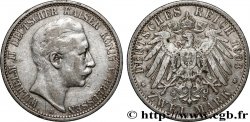
 Информация
Информация